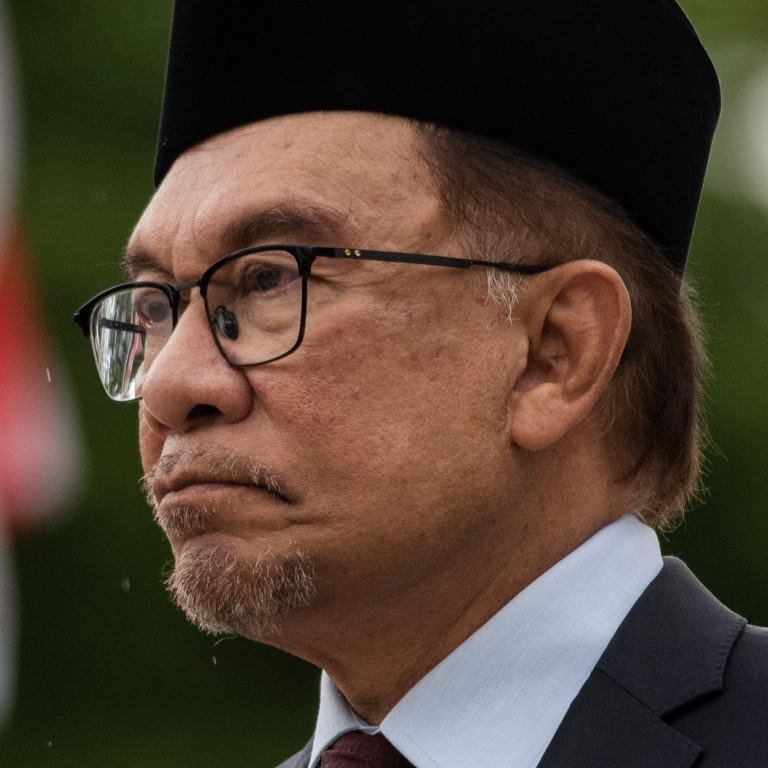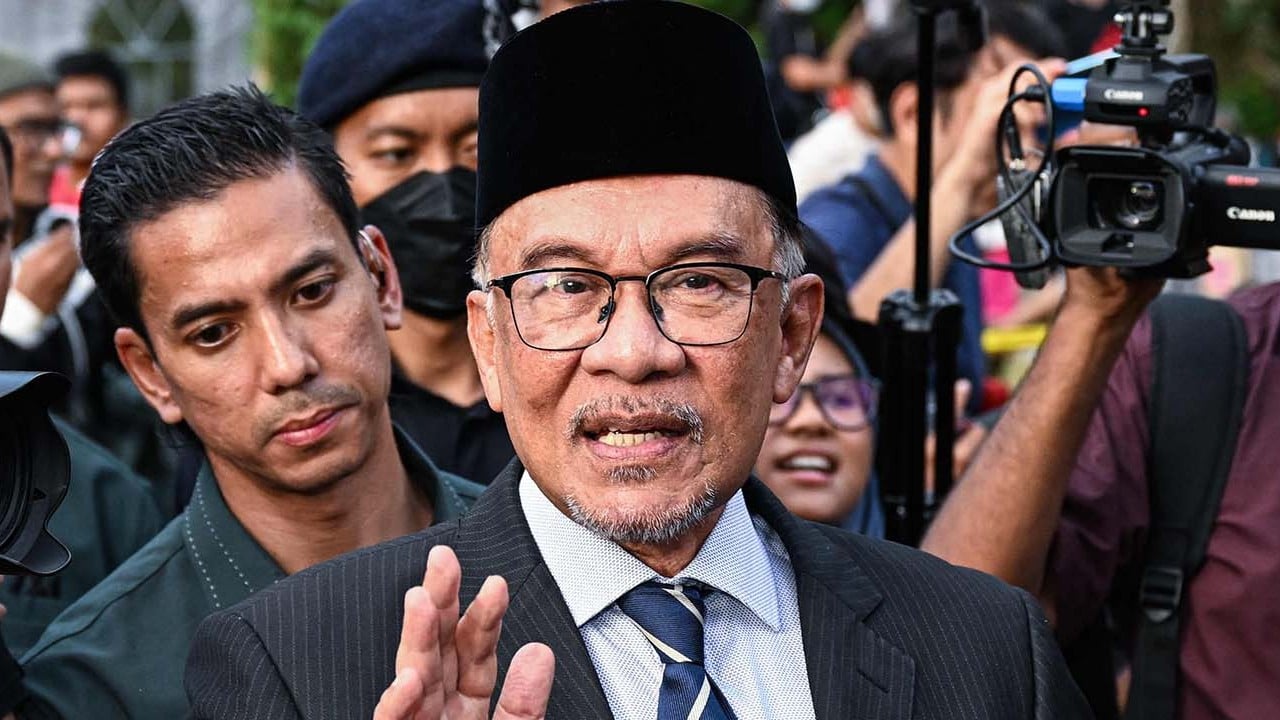
Anwar Ibrahim’s first 100 days: identity politics casts shadow over new Malaysia PM
- Islamist opposition PAS president Abdul Hadi Awang claims Anwar’s coalition government will soon collapse and not last the full five-year term
- Anwar needs to overcome communalism with state impartiality to provide stability to a country which saw 5 PMs in 5 years. His best hope is a growing middle ground that will judge politics based on merit instead of identity
Such is the shadow cast over Anwar’s coalition and Malaysian politics.
Anwar’s PH (Pact of Hope) coalition first formed a simple-majority ousting the hegemonic BN (National Front) coalition dominated by the Malay-nationalist party Umno in 2018 but collapsed after just 22 months.
Then, the Malay nationalist party and an Umno splinter, Bersatu, joined by 10 MPs from Anwar’s own PKR party walked out of the PH coalition, in the so-called “Sheraton Move”, named after the hotel where it was plotted.
Hadi hopes to see a Sheraton Move 2.0, but the political landscape has changed considerably.
On the surface, Anwar’s coalition is more fragile than the first PH government despite having exactly a two-thirds majority in the 222-member Parliament. It consists of PH’s 82 seats, BN’s 30, and the remaining 36 from a host of East Malaysian parties and independents.
Anwar managed to pull together this coalition because of Umno, whose president Zahid Hamidi was one of his proteges when Anwar was Umno’s deputy president before his purge by Mahathir in 1998.
To secure his position, Zahid has since purged most of his rivals in Umno, accused of betraying or sabotaging the party. Among his casualties is the popular ex-Health Ministry Khairy Jamaluddin.
Winners and losers of Malaysian PM Anwar’s first budget
A Sheraton Move 2.0 can only happen if Umno walks out of the government. That would leave Anwar’s coalition in a precarious position of having just six seats more than a simple majority, making it vulnerable to Borneo parties’ exodus or blackmails.
But why would Umno leave Anwar’s government as the second party to play third fiddle for PAS and Bersatu? Even if Zahid went to jail, his deputy Mohamad Hassan or anyone who replaces him would just take over the No. 2 post in the government.
For Umno leaders and the grass roots to contemplate leaving Anwar for PN, likely facilitating a merger of Umno and Bersatu, Umno needs to be paranoid of an election meltdown for losing the Malay support.
Anwar’s first 100 days: the hits, misses and challenges ahead for Malaysia’s PM
Bersatu left PH three months after losing a key by-election, in Tanjung Piai, concluding that it could not withstand the communalism attacks by Umno and PAS that PH was anti-Malay-Muslim.
For PAS and Bersatu, this summer’s midterm regional elections – in six states currently ruled by PAS and PH – offer the best chance to create a Tanjung Piai scenario for Umno.
For the three overwhelmingly-Malay states under PAS – Kelantan, Terengganu and Kedah, Umno’s defeat is expected as it has already been wiped out in November’s federal election.
‘Dinosaurs’: Malaysians criticise ban on LGBTQ books by Anwar’s government
The real battlefield is in the three multi-ethnic states under PH – Selangor, Penang and Negeri Sembilan. PH and Umno will divide the constituencies and put up common candidates to pool their support.
If PN manages to expand the so-called “green wave” riding on PAS’ religious populism – very likely if the turnout is low, Anwar would be seen as a prime minister propped up by non-Malays and lose his legitimacy in Malaysia’s toxic identity politics. Umno grass roots might then demand his government become more nationalist – which would alienate PH’s minority and liberal base – or pressure Umno to pull out.
For this game to work, PN would continue to play up Malay-Muslims’ insecurity.

The game is obvious: Anwar has to choose between being seen as weak in championing Malay-Muslims and Islam by not dancing to the Muslim nationalists’ tune or alienating his liberal and minority base for playing to the ethnic majority’s gallery.
Many PH supporters believe two developments are advantageous to Anwar. The first is the crackdown on corruption, which has seen Bersatu leaders charged for embezzlement. The opposition has claimed it’s a political witch-hunt.
The second is the excessive incumbent advantages in patronage built up since BN’s time – for example, opposition MPs are denied election funds to assist in small-scale infrastructure and welfare; federal funding to opposition-controlled states are implemented through federal agencies to avoid opposition claiming credit.
Anwar needs five years to show his ability to transform Malaysia
They might have overlooked the unintended consequences. Decades of state partiality have made many Malaysians highly partisan in judging politics. Instead of demanding fairness and decency, they compete to claim being victimised and believe the ends justify the means.
Now that the political divide is reconfigured into the binary choice of a multi-ethnic government and a predominantly-Malay opposition, discrimination against the opposition is conveniently framed by PN as discrimination against the Malay-Muslims to swing the Malay fence-sitters.
Anwar needs five years to show his ability to transform Malaysia. Against the anti-establishment green wave, as a result of not just political Islam but also post-pandemic economic discontent, his best hope is a growing middle ground that would judge politics based on merit instead of identity.
However, that is only possible if the authoritarian legacy of state partiality can be ditched, which in turn requires a paradigm shift in Anwar and his government.


